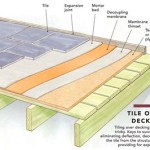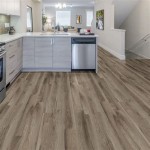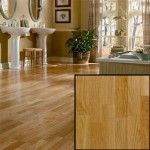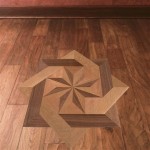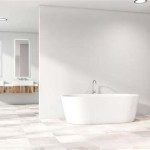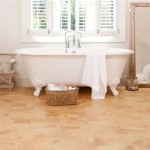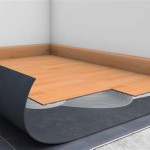How Much Does Refinishing Hardwood Floors Cost Per Square Foot?
Refinishing hardwood floors is a common home improvement project undertaken to restore their original beauty and extend their lifespan. The cost of this project is a primary consideration for most homeowners. While various factors influence the final price, understanding the average cost per square foot provides a useful starting point for budgeting and planning.
The cost to refinish hardwood floors is generally expressed in dollars per square foot. This metric allows for easier comparison between different flooring contractors and enables homeowners to estimate the overall project cost based on the square footage of the area to be refinished. Factors such as the type of hardwood, the condition of the existing finish, and the chosen finish options all contribute to the per-square-foot price.
Generally, homeowners can expect to pay between $3 to $8 per square foot for professional hardwood floor refinishing. This range encompasses a variety of services, from basic sanding and refinishing to more complex projects involving repairs and custom staining. The actual cost will vary based on several key factors, which are crucial to understand for accurate budgeting.
Factors Impacting Refinishing Costs
Several elements can significantly influence the cost of refinishing hardwood floors. These factors are important to consider when obtaining quotes from contractors and estimating the overall expense of the project. Addressing these aspects early in the planning process can prevent unexpected costs and ensure a satisfactory outcome.
Type of Wood: The species of wood flooring plays a role in the overall cost. Softer woods, such as pine, require more care during sanding and may require additional coats of finish for adequate protection. This added labor and material translates to a slightly higher per-square-foot cost compared to refinishing harder woods like oak or maple. Exotic hardwoods, like Brazilian Cherry or Ipe, may present unique challenges during refinishing, potentially increasing labor costs due to specialized techniques required.
Condition of Existing Floors: The state of the existing hardwood floors has a direct impact on the refinishing process. Floors with minor scratches and worn finish are relatively straightforward to refinish. However, floors with deep gouges, water damage, or significant staining require more extensive preparation. This may involve multiple passes with different grit sandpaper, spot repairs to address damaged areas, or even the replacement of individual boards, all of which increase the labor and material costs.
Square Footage of the Project: The total area being refinished naturally affects the overall project cost. While the per-square-foot price may decrease slightly for larger projects due to economies of scale, the total expense will still be considerably higher. Some contractors may offer tiered pricing based on square footage, so obtaining quotes for the specific dimensions of the area is essential. Furthermore, complex layouts with numerous corners and doorways may increase the labor time and, consequently, the cost.
Type of Finish: The choice of finish also influences the price. Polyurethane finishes are a common and durable option, available in oil-based and water-based formulations. Oil-based polyurethane is typically less expensive but has a stronger odor and longer drying time. Water-based polyurethane is more environmentally friendly, dries faster, and has a lower odor, but it may be slightly more expensive. Other finish options, such as penetrating oils or stains, may have varying costs depending on the brand and application process. The number of coats of finish also impacts the total cost.
Complexity of the Job: Certain aspects of the job can increase the complexity and, therefore, the cost. This includes moving furniture, removing existing flooring (if necessary), and dealing with difficult-to-reach areas, such as stairs or closets. Intricate patterns or custom designs may also require specialized skills and equipment, adding to the overall expense.
Geographic Location: Labor and material costs can fluctuate based on geographic location. Areas with a higher cost of living typically have higher rates for skilled tradespeople. The availability of local contractors and the demand for flooring services in a particular region can also influence pricing.
Breaking Down the Components of Refinishing Costs
Understanding the individual cost components of hardwood floor refinishing allows homeowners to better assess the value offered by different contractors and make informed decisions about their budget. The total cost is essentially the sum of materials, labor, and any additional services provided.
Materials: Material costs include sandpaper, wood filler, stains (if desired), and the chosen finish. The quality and type of materials significantly impact the durability and longevity of the refinished floors. Opting for higher-quality finishes may increase the upfront cost but can result in a more durable and aesthetically pleasing outcome in the long run. The amount of material required will depend on the square footage of the project and the number of coats applied.
Labor: Labor costs typically constitute the largest portion of the overall expense. This includes the time spent sanding the floors, repairing any damaged areas, applying the stain and finish, and cleaning up the work site. The labor rate will vary depending on the contractor's experience, skill level, and geographic location. It's crucial to obtain detailed quotes that clearly outline the labor costs involved in each stage of the refinishing process.
Additional Services: Besides the basic sanding and refinishing, several additional services may be required or desired. This could include furniture moving, floor cleaning, baseboard repair, and staining. Each of these services will add to the overall project cost. Be sure to discuss these extras with the contractor and receive a clear breakdown of their associated costs.
Contingency: It is advisable to include a contingency fund in the budget to cover unforeseen issues that may arise during the refinishing process. This could include unexpected repairs, hidden damage, or the need for additional materials. A contingency of approximately 10% of the total estimated cost is generally recommended.
Obtaining Accurate Quotes and Avoiding Hidden Costs
To ensure a fair and accurate price for hardwood floor refinishing, it's essential to obtain multiple quotes from reputable contractors. Thorough vetting and clear communication are crucial to avoid hidden costs and ensure a satisfactory outcome. Take the time to research contractors, read reviews, and ask the right questions before making a final decision.
Obtain Multiple Quotes: Contact at least three different contractors to obtain quotes for the project. This allows for comparison of pricing, services offered, and experience levels. Be wary of significantly lower quotes, as they may indicate subpar workmanship or the use of inferior materials. Request detailed written quotes that outline all costs involved, including materials, labor, and any additional services.
Check Contractor Credentials: Verify that the contractors you are considering are licensed and insured. This protects you from liability in case of accidents or damage to your property during the project. Check online reviews and ask for references to gauge the contractor's reputation and the quality of their work. A reputable contractor will be happy to provide references and answer any questions you may have.
Ask Detailed Questions: Before signing a contract, ask the contractor about their process, the materials they will use, and the timeline for the project. Clarify any potential hidden costs, such as charges for furniture moving or disposal of old flooring. Discuss the type of finish they recommend and its pros and cons. Ensure that the contract clearly outlines all the agreed-upon terms and conditions, including payment schedule and warranty information.
Read the Contract Carefully: Thoroughly review the contract before signing it. Pay attention to details such as the scope of work, payment terms, cancellation policy, and warranty provisions. If you have any questions or concerns, don't hesitate to ask the contractor for clarification. It's always best to have a clear understanding of the contract before proceeding with the project.
Prepare the Area Properly: To minimize disruption and potential complications, prepare the area to be refinished before the contractor arrives. This includes removing furniture, curtains, and any other items that could get in the way. Cover or protect any adjacent areas to prevent dust and debris from spreading. Clear communication with the contractor regarding the preparation process will help ensure a smooth and efficient workflow.
By understanding the factors that influence hardwood floor refinishing costs, breaking down the individual components, and taking the necessary steps to obtain accurate quotes, homeowners can effectively budget for their project and ensure a satisfactory outcome. This proactive approach will help avoid unexpected expenses and ensure the refinished floors enhance the beauty and value of the home for years to come.

Fixr Com Cost To Refinish Hardwood Floor Refinishing

Fixr Com Cost To Refinish Hardwood Floor Refinishing

Hardwood Flooring Cost 2024 Per Square Foot Mk

How Much Does It Cost To Refinish Hardwood Floors In Westchester

Fixr Com Cost To Refinish Hardwood Floor Refinishing

Hardwood Floor Refinishing Cost Urban Customs

How Much Does It Cost To Refinish Hardwood Floors Lv Flooring Toronto

Fixr Com Cost To Refinish Hardwood Floor Refinishing

The Cost To Refinish Hardwood Floors 7 Things You Need Know

Fixr Com Cost To Refinish Hardwood Floor Refinishing
See Also
